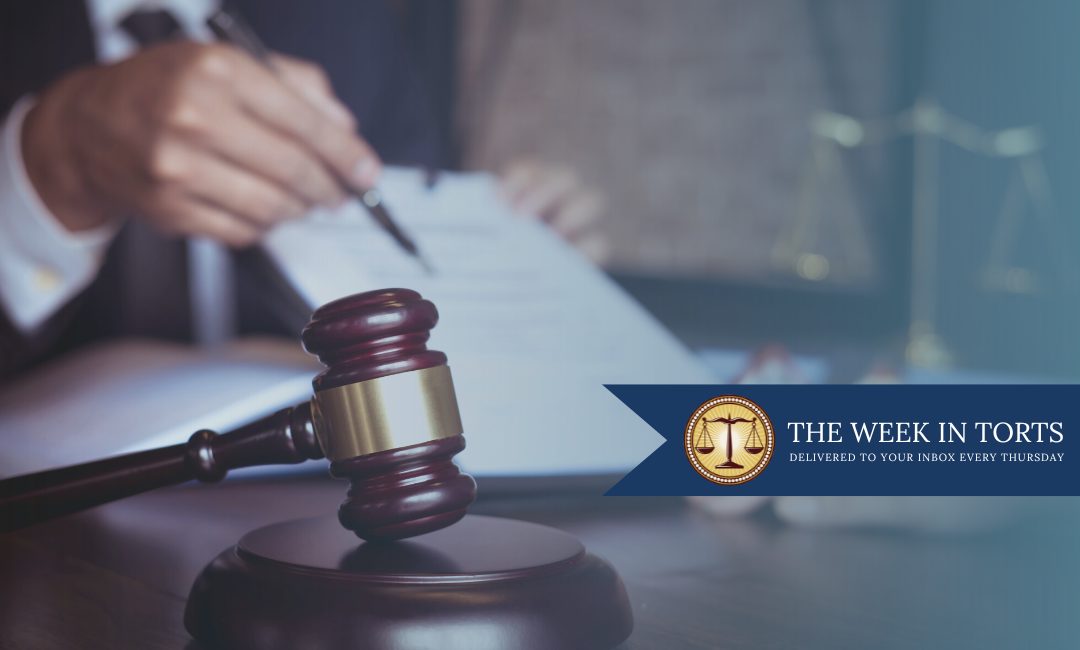The Week In Torts – Cases from September 15, 2023

It better be important
FLORIDA LAW WEEKLY
VOLUME 48, NUMBER 37
CASES FROM THE WEEK OF SEPTEMBER 15, 2023
COURT DID NOT ERR IN REFUSING TO CONTINUE SUMMARY JUDGMENT HEARING FOR PLAINTIFF TO TAKE OUTSTANDING DEPOSITIONS—THE DEPOSITIONS WERE NOT MATERIAL TO THE DISPOSITION OF THE CASE.
Freire v. Citizens Property Inc. Co., 48 Fla. L. Weekly D1785 (Fla. 3rd DCA Sep. 6, 2023):
A party seeking to continue a long-scheduled summary judgment hearing to complete outstanding discovery must demonstrate that the outstanding discovery (1) was sought diligently; (2) was sought in good faith; and (3) is material to the disposition of the case.
In this case the parties agreed that the depositions were sought diligently and in good faith. However it was clear that the outstanding depositions would not reveal any material facts relevant to the “disposition of the issues”.
As such, the court affirmed summary judgment as well as the denial of the continuance of the hearing.
NO ABUSE OF DISCRETION IN DENYING PLAINTIFF’S SECOND MOTION FOR ENLARGEMENT OF TIME TO SERVE DEFENDANT – – TRIAL COURT HAS DISCRETION TO DISMISS A CASE, EVEN WHEN THE STATUTE OF LIMITATIONS SERVES TO BAR THE ACTION.
Denose v. Garcia, 48 Fla. L. Weekly D1785 (Fla. 3rd DCA Sep. 6, 2023):
While Rule 1.070(j) allows trial courts to extend time for service even (and especially when) the statute of limitations has expired, in this case, the plaintiff sued the defendant on the last day of the statute of limitations.
On the day the plaintiff filed his complaint, he failed to submit a summons for issuance by the clerk, which resulted in an order from the trial court noting a lack of activity since the filing of the lawsuit, and ordering the plaintiff to secure issuance of the summons and service of process on the defendants within 30 days. The trial court’s order explicitly stated the case would be dismissed if the deadlines were not complied with.
The plaintiff did not submit the summons until two months after the trial court’s order. Twelve days later, the plaintiff filed a motion for enlargement of time due to the clerk’s delay in issuing the summons.
The trial court granted the motion and allowed an additional 30 days to secure service. In doing so, the trial court noted that the plaintiff waited until the “111th day” following the filing of suit to begin the service of process, and asking for the first summons to be issued.
The plaintiff was able to serve one of the defendants. However, the plaintiff filed a second motion for enlargement of time, advising that the second defendant needed to be served through the secretary of state.
This time, the trial court denied the request and dismissed the case against the defendant. Under these facts, the appellate court upheld the dismissal.

